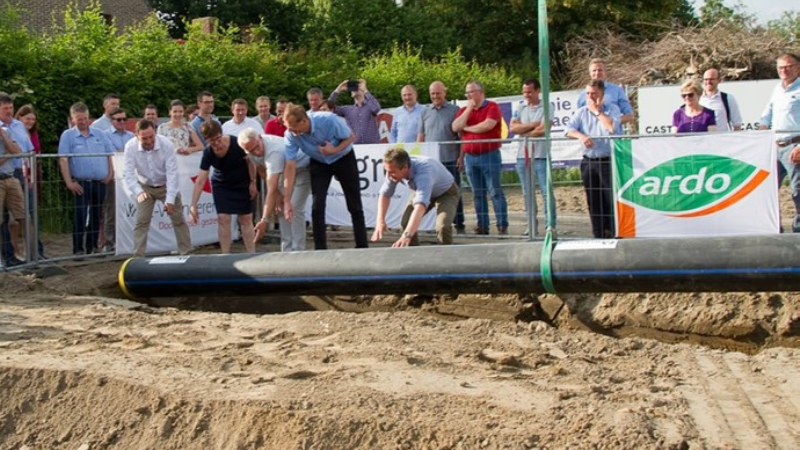by Groene Kring – The Flemish Young Farmers Association
Description
Drought is becoming an issue in Flanders, in fact, over the last years, there have been long dry periods. Although the amount of rain per year remains stable, the periods of drought get longer.
The impacts of the COVID-19 pandemic are mostly a significant drop of prices in the sectors that rely on world markets (poultry, pork, potatoes, some vegetables, milk…) as well as the flower sector. Furthermore, the search for seasonal workers in the horticultural sectors was difficult during the travel bans in the first lockdown.
To make sure the yield and quality of crops remain adequate, farmers started irrigating. Because of the cost of irrigation, smart irrigation techniques that use water extremely efficiently are being implemented. An example is the reuse of water of a vegetable processing plant for the irrigation of the vegetables nearby through a smart tubing network. Another technique is precision irrigation that is used in the fruit sector and makes sure only the necessary water is being added to the tree, immediately at the roots.
To mitigate the price effects of the COVID-19 crisis, a lot of market buffering systems have been introduced. In Flanders, an organisation that helps farmers ensure their dairy income by working with future contracts has been introduced.
Results
- Farmers are more secure of a stable and high-quality yield, even though periods of drought, while using water efficiently.
- Prices of farmers are more buffered and farming families can keep their income up.
Climate smartness*
The practices presented in this experience are framed within the concept of Climate-Smart Agriculture (CSA) since they meet two of its three pillars (adaptation and productivity increase).
The practices related to the efficient use of water, such as the use of water recycling systems, high-efficiency irrigation systems, and localized irrigation, help increasing climate adaptation and productivity. On the other hand, the practice related to new forms of marketing enables farmers to increase their income.
Given that prolonged droughts are the most recurring climatic problem in Flanders, all those practices related to the capture, storage, and efficient use of water are relevant. Because of this, it is recommended to take into account the practices mentioned, as well as the use of improved, drought-resistant genetic materials.
*This is done in the framework of climate-smart agriculture (CSA) approach. Climate-smartness in agriculture means understanding impacts of climate change and variability along with the agricultural activity, which includes the planning of what crop to plant, when to plant, what variety to plant and what type of management practices are needed to reduce the impact on the environment (e.g. emissions reduction), maintain or increase productivity (e.g. yields) while increasing resilience and improving livelihoods.


